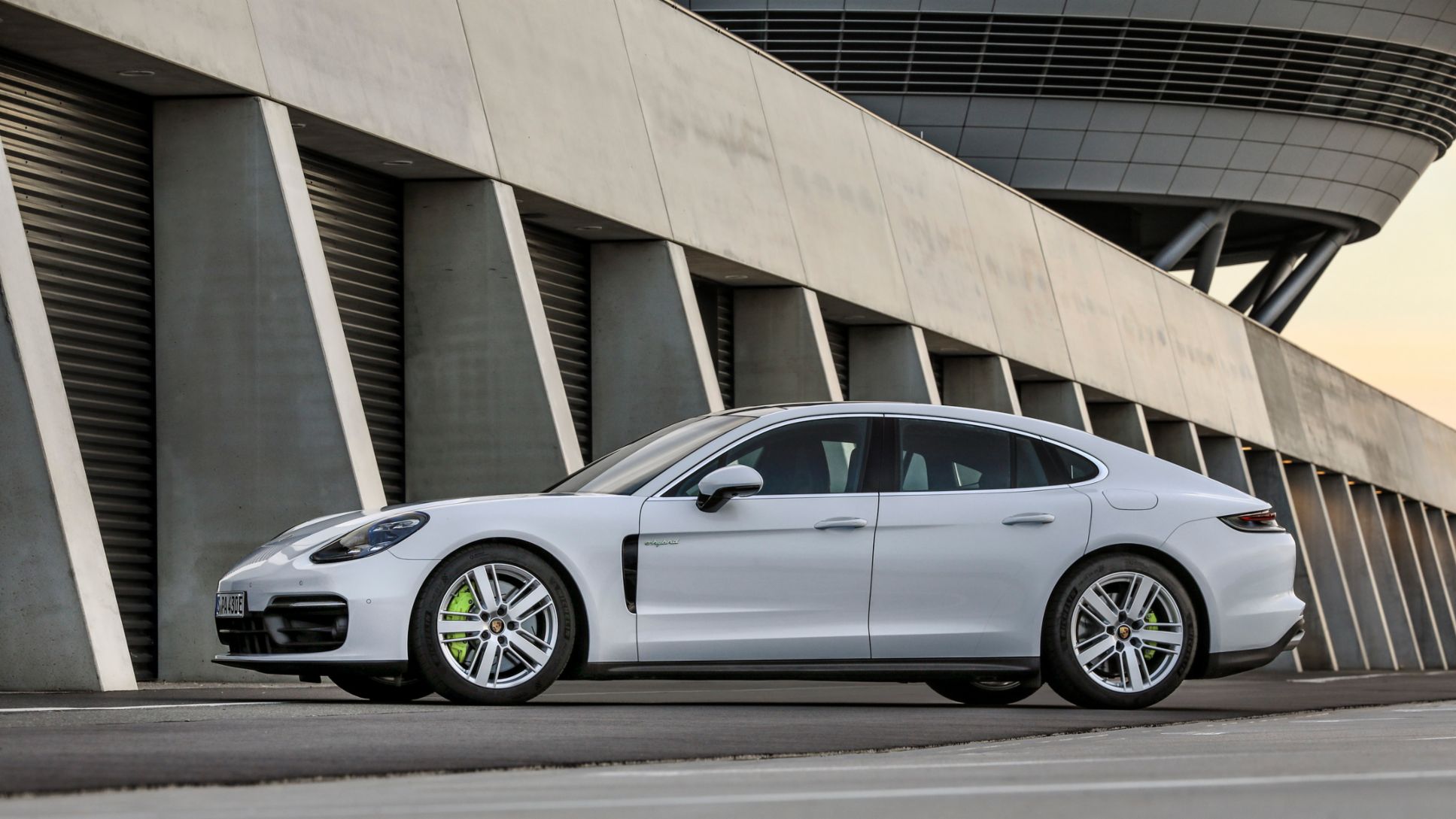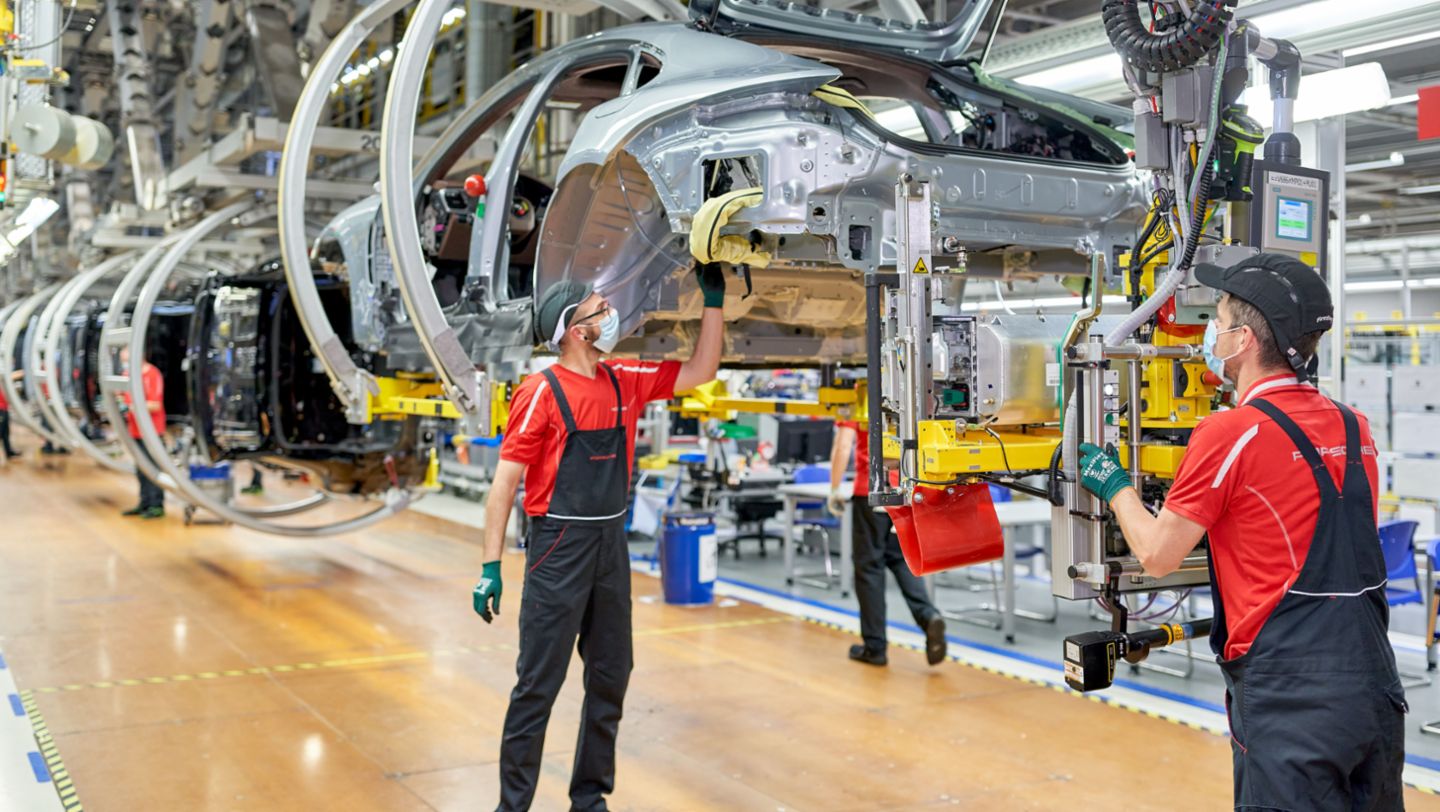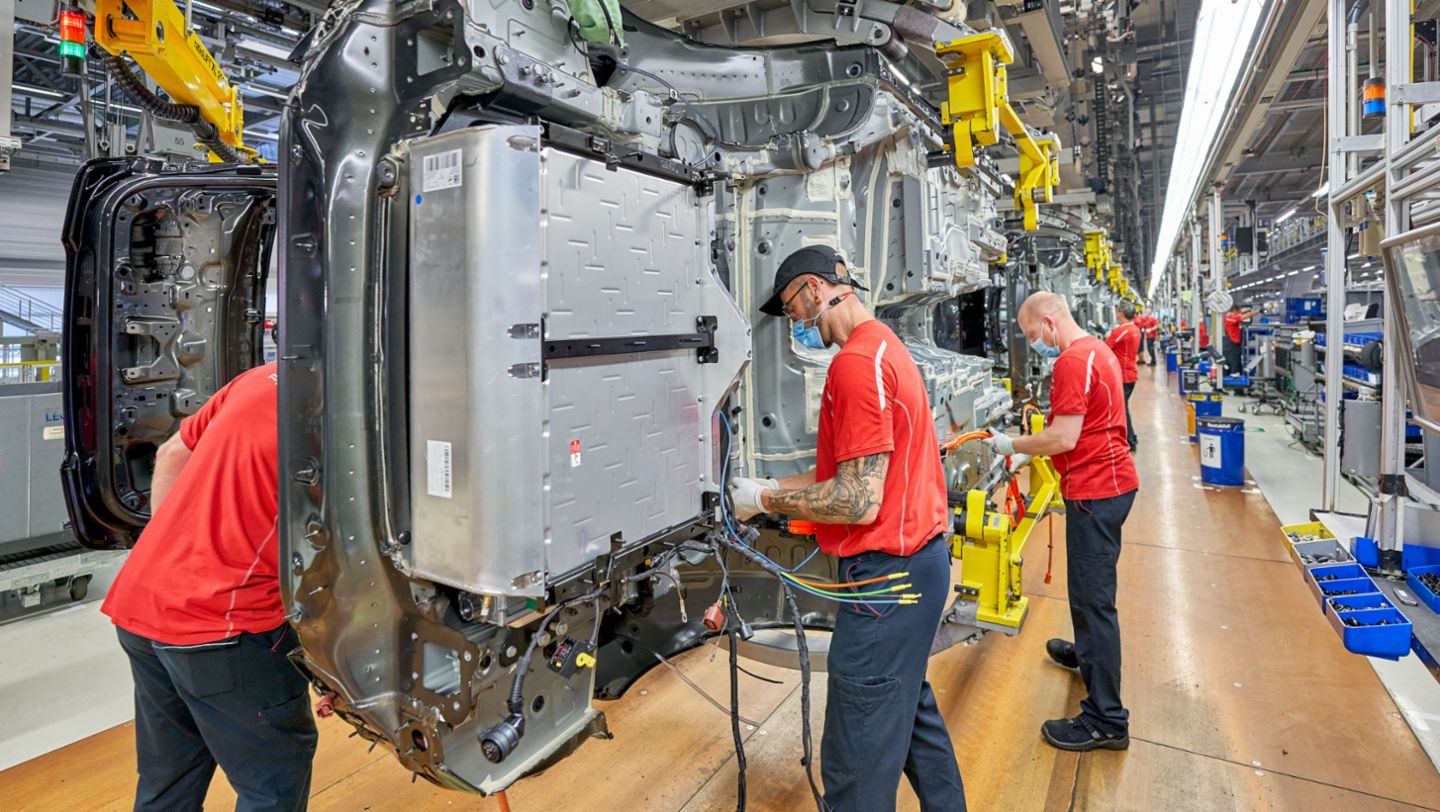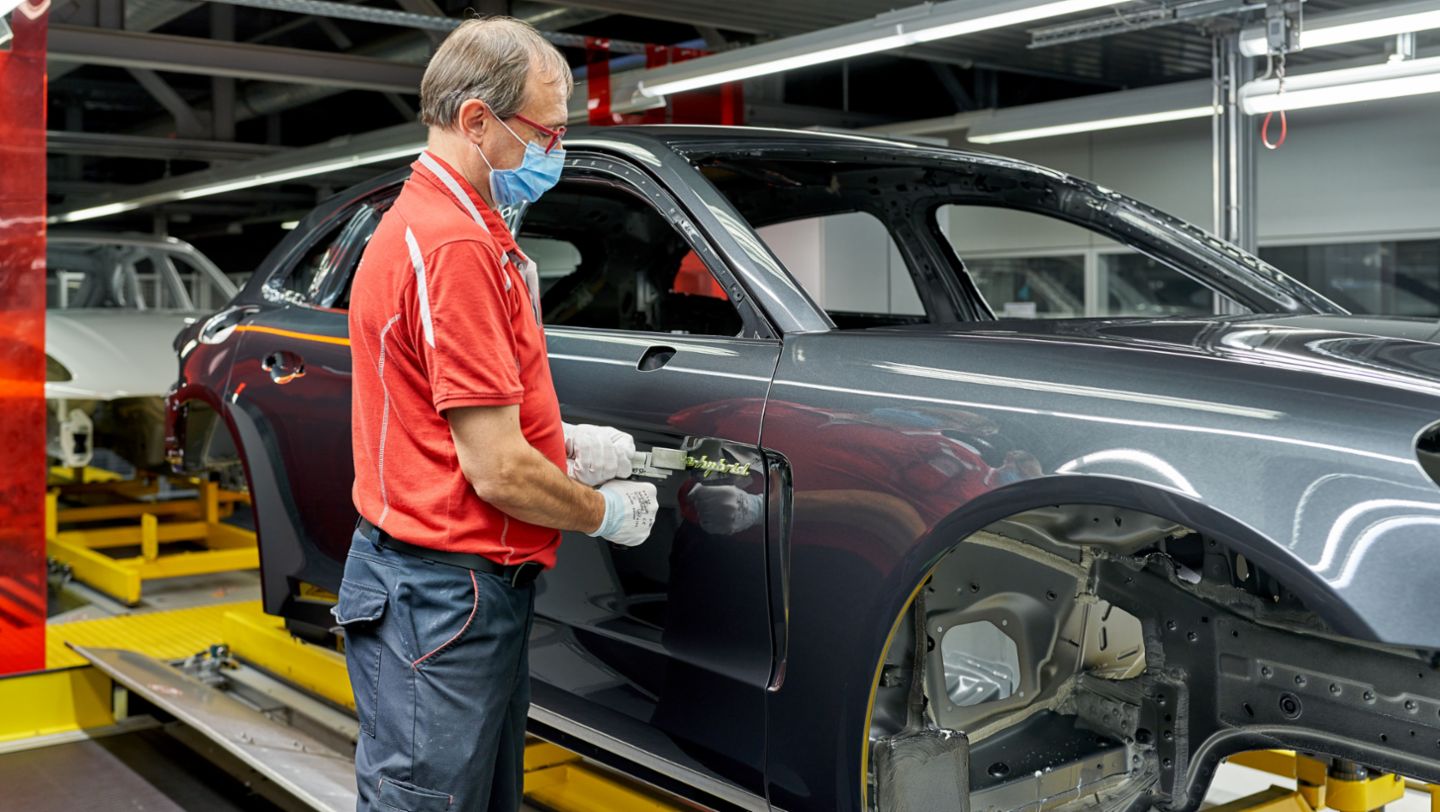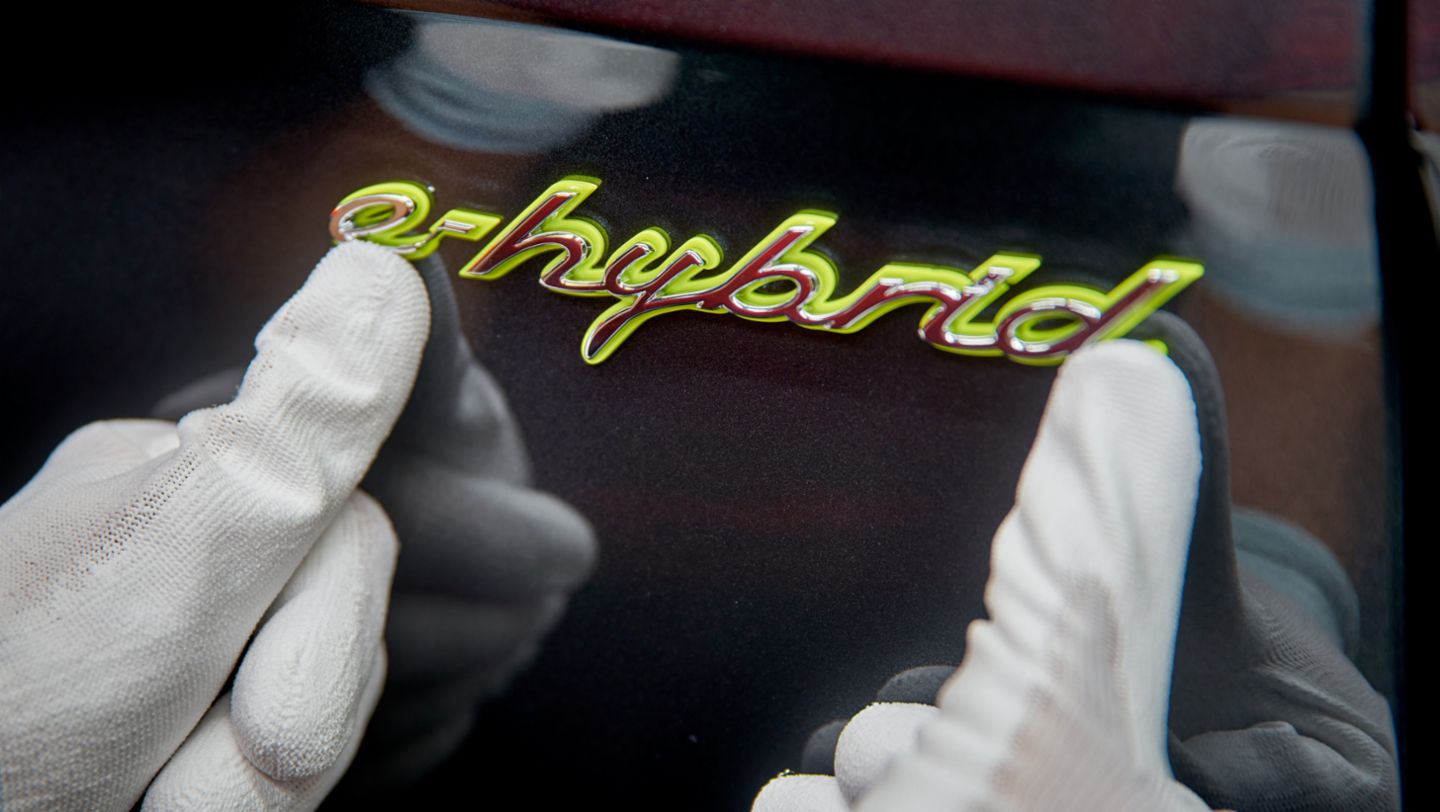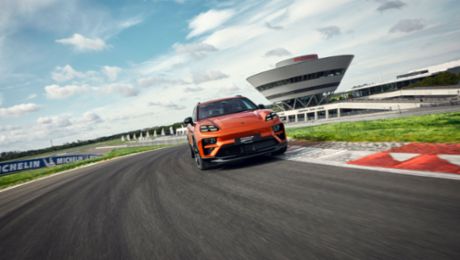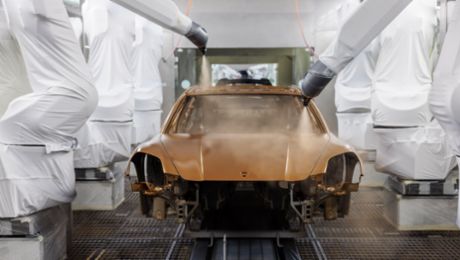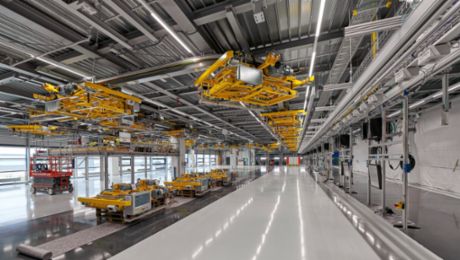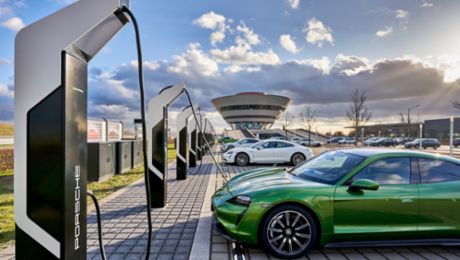Flexibility has always been a characteristic of Porsche in Leipzig. The site is currently getting ready for the integration of fully electric cars with its fifth phase of factory expansion. Electric mobility is not an entirely new concept for Porsche Leipzig, however, as the first hybrid car from Porsche – the Cayenne S Hybrid – came off the production line there in 2010. The company pioneered new ground with its introduction of innovative technology, marking a new chapter in the history of its site in Saxony.
“The Leipzig plant demonstrated the highest degree of flexibility by integrating hybrid cars into the existing production line,” says Albrecht Reimold, Member of the Executive Board for Production and Logistics of Porsche AG. “Over the course of the following years, Porsche has evolved from a technological pioneer to the only manufacturer in the premium segment that is offering three plug-in hybrids at the same time.”
“The Leipzig plant demonstrated the highest degree of flexibility by integrating hybrid cars into the existing production line.” Albrecht Reimold
Porsche is fully committed to E-performance at its Leipzig factory: the Panamera S Hybrid celebrated its production launch there just one year after the world premiere of the Cayenne S Hybrid. And just a few weeks ago, Porsche supplemented the current plug-in hybrid range with the addition of the new Panamera 4S E-Hybrid and its completely new drive system with 412 kW (560 PS; Panamera 4S E-Hybrid: Fuel consumption combined 2.2 – 2.0 l/100 km, Electricity consumption combined 18.1 – 17.4 kWh/100 km; CO₂ emissions combined 51 – 47 g/km (as of 10/2020)) combined output with the addition of the new Panamera 4S E-Hybrid. Its all-electric range is up to 30 per cent longer than in previous hybrid models.
To date, the Leipzig factory has manufactured more than 75,000 hybrid cars across the Cayenne (2010 to 2017) and Panamera product lines. The alternative drive system is particularly popular in Europe, where 60 per cent of Panamera models delivered during the 2019 fiscal year were hybrids. The share of hybrid models is even higher in France, where the figure is 80 per cent.
Porsche is investing about 600 million euros in its site in Saxony following the decision to manufacture the next-generation Macan as an all-electric variant in Leipzig. Albrecht Reimold: “We are consistently continuing our integration strategy. This expansion will give us the option of manufacturing petrol, hybrid and all-electric cars on a single production line in future. This means we are preparing our site for mobility as well as future customer demands in the best possible way.”
The first all-electric compact SUV from Porsche will leave the production line within the decade. As the world’s regions are developing very differently in terms of electric mobility, the sports car manufacturer will continue to offer the Macan model with a combustion engine for now.
An important key to the success of the Leipzig site is the workforce. “The employees have demonstrated their expertise in working with alternative drives for years now. They are looking forward to launching the electric powertrain alongside the hybrid in future,” says Gerd Rupp, Chairman of the Executive Board at Porsche Leipzig GmbH. “It is important to us to take the entire workforce with us on this journey. This is why we are already starting with the qualification measures for all-electric cars.”
